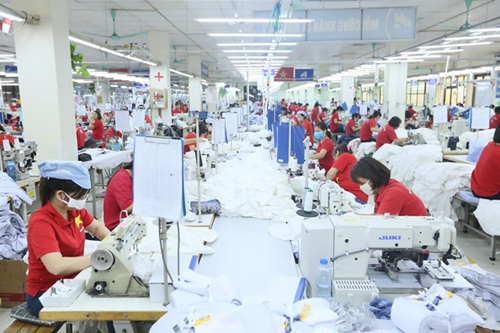Pham Oanh, whose hometown is in Thua Thien-Hue province, has been a construction worker in the southern provinces for about 10 years. Normally, he returns to work in the southern provinces after Tet (Lunar New Year).
However, after the COVID-19 outbreak, he decided to look for a job in his hometown and is now working at a cement company in the province.
    |
 |
|
Photo for illustration: thanhnien |
Pham Kim Yen, who lives in Thua Thien-Hue province and works for a garment export foreign company in Binh Duong province, said that her company had to temporarily close for a few months.
“I had to look for another job and now I work for a local garment company. The income is lower than when I worked in Binh Duong. However, I don't have to pay rent for a house and the living cost in Binh Duong is higher than in Thua Thien-Hue.”
Truong Thi Thuy Lien, director of a leather and footwear export company in Binh Duong, said that many workers who had returned home for the Tet holiday did not return to work because of the COVID-19 pandemic. "My company is constantly recruiting but it is not enough. Estimated shortage is about 15 percent."
Le Nhat Tuong, chairman of Pousung Vietnam Ltd in Dong Nai province, said the company had built more factories and planned to recruit about 10,000 workers in 2020. However, since the beginning of the year, only 1,000 new employees have been recruited, and the recruitment plan has been suspended.
In addition to adding more workers when there is a need to expand production, Pousung Company annually recruits new employees to supplement workers and 'job skippers', Tuong said.
The food service sector also faces a shortage of workers. Many restaurants, cafes, and commercial services in Ho Chi Minh City have had to scale down or close because of the shortage of workers.
Le Thanh Nhan, owner of a large restaurant in HCM City’s District 1, said that of his 100 workers, "more than half are from central provinces and they have not returned because the COVID-19 pandemic is not fully under control".
Lien’s footwear company has decided to outsource some stages of production when there are too many orders.
For Pousung Company, the company will invest in technology to reduce manual labour, continue its annual recruitment and training plans for employees, and provide incentive policies for new employees, according to Tuong.
Source: VNA